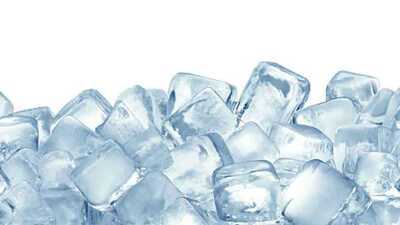Craving a bar of chocolate or a packet of salty chips or a glass of mango lassi might feel like just a snack attack but pay attention as your body could be trying to tell you something about your reproductive health. According to senior IVF consultant Dr Rita Modi, those urges may be more than flavour and could hint at hormonal shifts, nutritional gaps and reproductive-health signals.
In an interview with the Times of India, Dr Rita Modi, Senior IVF Consultant at Motherhood Fertility and IVF in Kharghar, shared, “Food cravings can help you understand your nutritional needs, hormonal changes, and overall reproductive health. These signals can actually be helpful for couples when it comes to optimising fertility.”
In other words, that midnight craving might be more than a mood. It could be a message.
When hormones talk through hunger
“During the pre-conception phase, a woman’s body undergoes hormonal changes that may have an impact on her appetite, taste preferences, and also lead to specific cravings,” explained Dr Modi. These cravings, she added, can often act as small windows into what the body is lacking.

For instance, craving sweets or chocolates might be linked to low serotonin or energy dips. While the occasional indulgence is fine, “consistent sugar overload may lead to insulin imbalance, which is important for ovulation,” Dr Modi warned.
Craving salty foods could indicate an electrolyte imbalance involving minerals like sodium and potassium, while dairy cravings may point toward a calcium deficiency. Calcium is an essential nutrient for bone and reproductive health.
Talking about iron-rich foods, Dr Modi said, “Craving spinach or lentils may reflect low iron levels. Adequate iron supports healthy ovulation and helps prevent anaemia-related complications.”

Even more intriguing are unusual cravings such as ice, clay or chalk. “These may signal deficiencies in iron or zinc,” said Dr Modi. “If you experience such cravings, it’s a sign to consult a doctor rather than ignore them.”
Science agrees: Nutrition shapes fertility
Emerging research supports Dr Modi’s clinical observations. A 2019 review in Frontiers in Endocrinology found that “abnormal body weight and energy supply, as well as unbalanced dietary intake of carbohydrates, fatty acids, proteins, vitamins and minerals, all exert a detrimental impact on ovulatory function.”
Similarly, a recent 2025 study published in BMC Public Health reported that women consuming the highest levels of ultra-processed foods (UPFs) were 43% more likely to experience infertility than those who ate minimally processed diets.
Even cravings tied to menstrual discomfort show a pattern. A 2024 study in PLoS ONE revealed that women who craved high-fat or sugary foods were up to three times more likely to experience irregular menstrual cycles.

All this underscores what Dr Modi reiterates daily to her patients, “Your cravings aren’t random — they reflect your body’s biochemistry. When you listen to them mindfully, you can often catch early signals of imbalance that might later affect your fertility.”
Listening without overindulging
So, should you give in every time you crave chocolate or chips? “Not quite,” said Dr Modi. “The key is moderation. Cravings can highlight what your body needs but overindulgence — especially in sugar, salt, or processed food — can create new problems, such as weight gain, insulin resistance, or hormonal imbalance.”
She recommended focusing on a whole-food-based diet filled with fruits, vegetables, whole grains, proteins and good fats. “Stay away from processed foods and fizzy drinks. Instead, eat colourful meals that give you energy without spiking your sugar levels,” she advised.
Hydration matters too. Salty cravings can sometimes be your body’s cry for water, not chips.
Cravings as fertility clues
To break it down simply:
A balanced plate for better chances
Dr Modi recommended working with a nutritionist or fertility specialist if cravings feel intense or unusual. “Don’t dismiss them as quirks — see them as cues,” she said. “But don’t go overboard either. The goal is to restore balance, not to justify bingeing.”
She added, “A healthy, balanced diet improves overall reproductive health, hormonal balance and egg quality. When the body receives what it needs, everything — from cycles to conception — runs more smoothly.”
Bottom line
It turns out that cravings can be a language of their own or a whisper from your hormones, nutrients and even stress levels. The key lies in decoding them with curiosity rather than guilt. As Dr Modi put it, “Every craving is a clue. If you listen carefully, your body tells you what it needs to create life — it’s as simple and as beautiful as that.”
Note: The information provided in this article is for educational purposes only and is not intended as medical advice. Always consult with a qualified healthcare professional before starting any new medication or treatment and before changing your diet or supplement regimen.
In an interview with the Times of India, Dr Rita Modi, Senior IVF Consultant at Motherhood Fertility and IVF in Kharghar, shared, “Food cravings can help you understand your nutritional needs, hormonal changes, and overall reproductive health. These signals can actually be helpful for couples when it comes to optimising fertility.”
In other words, that midnight craving might be more than a mood. It could be a message.
When hormones talk through hunger
“During the pre-conception phase, a woman’s body undergoes hormonal changes that may have an impact on her appetite, taste preferences, and also lead to specific cravings,” explained Dr Modi. These cravings, she added, can often act as small windows into what the body is lacking.

For instance, craving sweets or chocolates might be linked to low serotonin or energy dips. While the occasional indulgence is fine, “consistent sugar overload may lead to insulin imbalance, which is important for ovulation,” Dr Modi warned.
Craving salty foods could indicate an electrolyte imbalance involving minerals like sodium and potassium, while dairy cravings may point toward a calcium deficiency. Calcium is an essential nutrient for bone and reproductive health.
Talking about iron-rich foods, Dr Modi said, “Craving spinach or lentils may reflect low iron levels. Adequate iron supports healthy ovulation and helps prevent anaemia-related complications.”
Even more intriguing are unusual cravings such as ice, clay or chalk. “These may signal deficiencies in iron or zinc,” said Dr Modi. “If you experience such cravings, it’s a sign to consult a doctor rather than ignore them.”
Science agrees: Nutrition shapes fertility
Emerging research supports Dr Modi’s clinical observations. A 2019 review in Frontiers in Endocrinology found that “abnormal body weight and energy supply, as well as unbalanced dietary intake of carbohydrates, fatty acids, proteins, vitamins and minerals, all exert a detrimental impact on ovulatory function.”
Similarly, a recent 2025 study published in BMC Public Health reported that women consuming the highest levels of ultra-processed foods (UPFs) were 43% more likely to experience infertility than those who ate minimally processed diets.
Even cravings tied to menstrual discomfort show a pattern. A 2024 study in PLoS ONE revealed that women who craved high-fat or sugary foods were up to three times more likely to experience irregular menstrual cycles.
All this underscores what Dr Modi reiterates daily to her patients, “Your cravings aren’t random — they reflect your body’s biochemistry. When you listen to them mindfully, you can often catch early signals of imbalance that might later affect your fertility.”
Listening without overindulging
So, should you give in every time you crave chocolate or chips? “Not quite,” said Dr Modi. “The key is moderation. Cravings can highlight what your body needs but overindulgence — especially in sugar, salt, or processed food — can create new problems, such as weight gain, insulin resistance, or hormonal imbalance.”
She recommended focusing on a whole-food-based diet filled with fruits, vegetables, whole grains, proteins and good fats. “Stay away from processed foods and fizzy drinks. Instead, eat colourful meals that give you energy without spiking your sugar levels,” she advised.
Hydration matters too. Salty cravings can sometimes be your body’s cry for water, not chips.
Cravings as fertility clues
To break it down simply:
A balanced plate for better chances
Dr Modi recommended working with a nutritionist or fertility specialist if cravings feel intense or unusual. “Don’t dismiss them as quirks — see them as cues,” she said. “But don’t go overboard either. The goal is to restore balance, not to justify bingeing.”
She added, “A healthy, balanced diet improves overall reproductive health, hormonal balance and egg quality. When the body receives what it needs, everything — from cycles to conception — runs more smoothly.”
Bottom line
It turns out that cravings can be a language of their own or a whisper from your hormones, nutrients and even stress levels. The key lies in decoding them with curiosity rather than guilt. As Dr Modi put it, “Every craving is a clue. If you listen carefully, your body tells you what it needs to create life — it’s as simple and as beautiful as that.”
Note: The information provided in this article is for educational purposes only and is not intended as medical advice. Always consult with a qualified healthcare professional before starting any new medication or treatment and before changing your diet or supplement regimen.
You may also like

Farah Khan reveals Kajol returned to film set just a month after giving birth

India, US discuss bilateral trade engagement, opportunities of collaboration in technology

Bihar: Locals in Danapur use boats to reach polling stations to cast their vote

'I found two rare Jellycats at charity shop and couldn't believe their true worth'

Gold gains from 1-week low as dollar declines amid peak wedding season demand





